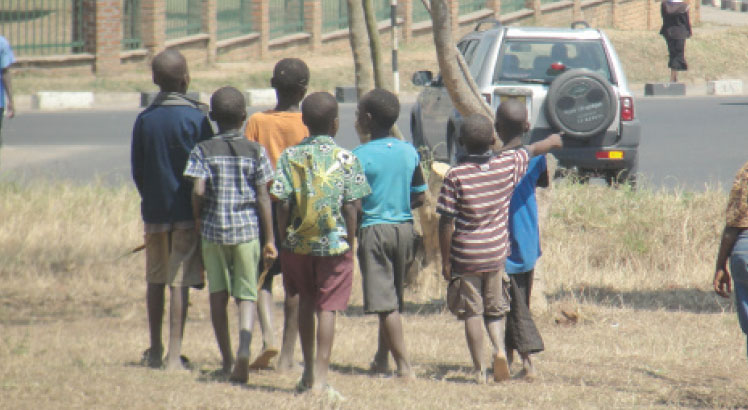Committee says street children removal complex
The Committee on the Removal of Street Children says the process of removing children from the streets remains a complex issue which involves a lot of parameters to deal with.
In an interview on Sunday, committee chairperson McBain Mkandawire, who is also Youth Net and Counselling (Yoneco) executive director, said the process needs an approach that should empower the children not to return to the streets once removed.

He said: “There is a need to understand what drives them to the streets because in most situations, we just go with quick-thinking solutions which are not ideal.
“The challenge is that we look at them as the problem instead of looking at the real problem because if we dig deep, we will find that there is a social breakdown somewhere that needs to be fixed.”
Mkandawire said while financial issues are mostly portrayed as the children’s main drive to the streets, there are numerous serious factors that force them to leave their homes for the streets.
Concerns about street children follow reports that some people have been attacked by street children in the country’s cities.
However, Section 23 of the Child Care and Justice Act prohibits their presence from the streets.
A 2017 report on street children showed that Blantyre has the highest population of street children at 1 800, followed by Lilongwe with 1 200 and Mzuzu with 600.
Unicef estimates that 49 percent of school-going age brackets of three to five are under the care of community-based organisations.
In a separate interview, SOS Children’s Villages Malawi Trust spokesperson Linda Harawa, said one of the best approaches in dealing with the challenge is for the government to focus on financing programmes that will strengthen families.
“Due to the breakdown of family systems, children have been greatly affected to the extent that children try to survive on their own even if it means using illegal ways of loitering in the streets, and in the process committing heinous crimes,” she said.
Kamuzu University of Health Sciences clinical psychologist Moses Muotcha said street children need psychological support if they are to reform.
He said: “They [street children] are going through a lot. The absence of a place called a home itself is traumatising.
“So, they have to adapt to a life that’s difficult for them or even engage in criminal activities.”
Minister of Gender, Community Development and Social Welfare Patricia Kaliati in an earlier interview said the ministry has a five-year plan to remove street children.






One Comment